Climbing out of depression after quitting drinking alcohol
Depression and low mood are very much connected with drinking alcohol.
After all, alcohol is a strong potion that directly attacks your thought processes.
So it would only be right to expect someone’s mood to be affected when they stop drinking.
Yes, when people stop drinking, there is a common theme that they experience happiness and generally feeling a better in themselves.
But, there is very often an experience of a dip in mood.
Post drinking blues….coming to terms with many emotions….re-learning aspects of your life. There are many reasons why this could be.
Let’s look at depression and quitting alcohol.
Alcohol and mood come together in many ways depending on the individual, but depression and alcohol abuse are very common to be reported by the same person at the same time.
In some people, depression can cause people to drink more, and for others, the actual signs and symptoms of depression are as a direct result of drinking. This can be very confusing, and very challenging for anybody to go through.
Often we feel the effect of low mood and depression hit them when quitting alcohol.
With all of these variables and ‘maybe’s, it might be worth thinking what is the point of even stopping drinking if you are only going to get worse.
Do not think like this!!
I promise you this, the low mood that does come after stopping drinking (if at all) is quite temporary.
You may hear people who have decided to go teetotal or stop drinking, to talk about how it is the best thing that they have ever done.
Now I am not a betting man, but I would say that most if not all of these people did not find giving up easy – or at that stage felt that it was the best thing that they had ever done.
But once a person goes through these tough times, the rewards at the end are so much worth it.
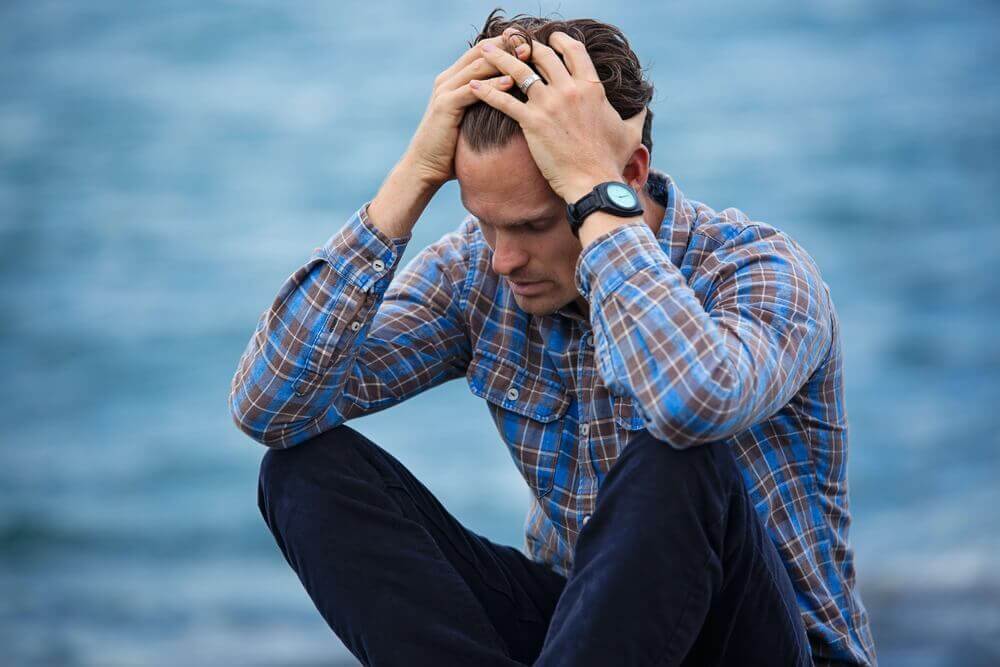
Depression when stopping drinking does not occur in everyone, of course……. but it is very common and normal for anyone quitting alcohol (or quitting any addictive substance, really) to experience low mood at some point in their sober journey.
Why does depression and low mood happen to people when quitting alcohol?
We are all at some level of risk to experience depression regardless of age race or creed, but someone who is walking the path of sobriety, especially in the early days, are more suscebtible to feelings of depression.
Depression can happen for many reasons – and working out the reason that it is affecting you is key to working how the next step – how to stop feeling depression after drinking alcohol.
Depression and Alcohol Withdrawal.
The symptoms of depression are a very common experience when someone decides to kick the booze and start down the path of sobriety.
Psychological reasons for depression are active in any addiction, but with alcohol (and again some other addictive substances) the depressive symptoms could be biological – as in physical. Alcohol convinces your brain to boost your dopamine.
When you stop drinking alcohol, yoru dopamine is in a state of confusion – which takes time to recover.
To add to this, alcohol in long-term abuse can cause clinical depression and other brain impairments. Long term use of alcohol can cause difficulty with controlling of emotions and with this can make depression get worse. This feeling of lower moods often remain while reaching sobriety and beyond.
Alcohol also has the very real risk of experiencing physical withdrawals. Aside from the physical risks, withdrawals can lead to a depression even once you have banished the booze.
- You are mourning – and it can be perfectly normal to feel symptoms of depression when mourning, right?
e are all prone to depression regardless of age race or creed, but someone who is walking the path of sobriety, especially at the start, is more susceptible to experiencing low mood and/or other depressive symptoms.
spin the rest from – https://smarmore-rehab-clinic.com/blog/04/2020/do-you-suffer-depression-after-giving-alcohol
What Is Alcohol Withdrawal?
Alcohol withdrawal is a condition that is usually used to describe when someone is PHYSICALLY going through a reaction to the withdrawal of alcohol. This can occur when someone who drinks heavily suddenly stops using alcohol.
It is caused by the sudden decrease of alcohol in the body and can be quite severe. Symptoms of alcohol withdrawal include shaking, sweating, nausea, vomiting, insomnia, confusion, irritability and anxiety. Severe cases may even include seizures and delirium tremens which can be fatal if left untreated. So, it really is not just a case of ‘riding it out’.
If you are stopping alcohol, we strongly advise seeking medical advice in the first instance.
Even if you have decided to go it on your own, it is always advised to get checked out even if it is just the physical aspects for safety.
Treatments for physical alcohol withdrawal vary depending on the severity of the case but generally involve medications to reduce symptoms and lessen cravings along with psychological and social support to help individuals stop drinking. The effects of alcohol use should never be underestimated so seeking professional treatment as soon as possible is always recommended for those wanting to quit or reduce their alcohol consumption.
Alcohol withdrawal from a psycohological aspect tends to bring many symptoms similar to depression, and it is not unusual for clinical depression to be present during your journey to sobriety.
What Causes Depression in Recovery?
Depression in recovery from alcoholism or other substance use disorders is a real and serious concern. People in recovery often find themselves feeling depressed for various reasons, including dual diagnosis issues that can cause depression. Brain chemistry is usually the underlying cause of depression, and when combined with the pressure of sobriety and the fear of relapse, depression hits hard for many people in recovery. Self-medicating with alcohol can make it worse, as can certain medications used to treat dual diagnosis treatment. Depression in recovery can take on many forms, but it is important to get help as soon as possible if you start to feel depressed. Professional counseling and support groups are great resources to help people cope with depression during recovery and maintain sobriety.
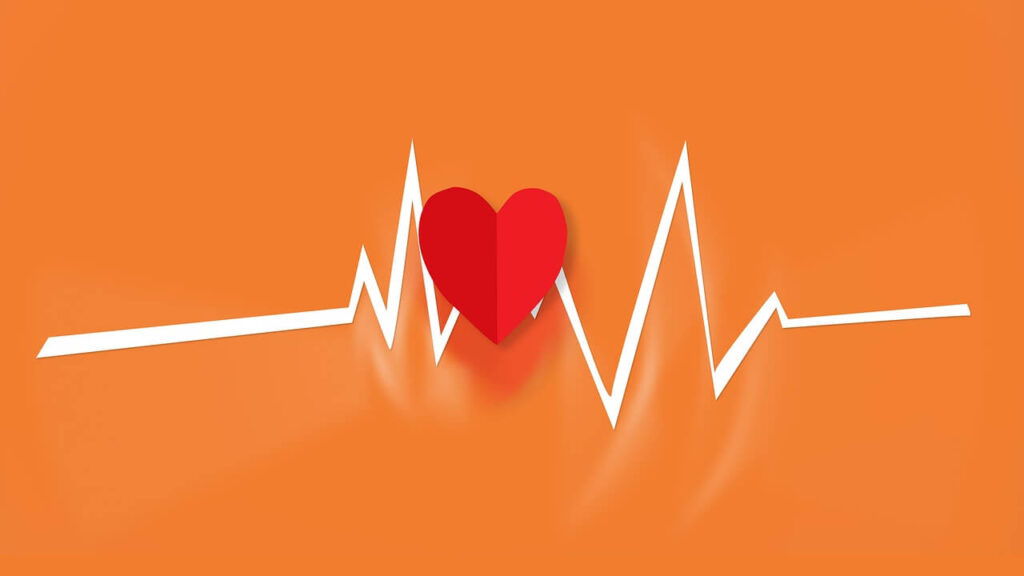
Know the Signs and Symptoms of Depression.
Depression is a serious mental health disorder that can have a major impact on anyone’s life. Depression is not choosy, and anyone can potentially become depressed. Awful, awful illness.
It is important to be aware of the signs and symptoms of depression so that we can get help when needed.
If you or someone you know is experiencing any of these signs or symptoms of depression it is important to seek professional help. A doctor or mental health professional can offer treatment options to help educate you and ease the symptoms of depression and improve your overall well-being.
Symptoms of Depression.
Symptoms of depression after quitting drinking can be overwhelming in some cases, and it can be difficult to manage your depression.
Common symptoms of depression include feelings of sadness or emptiness, loss of interest in activities and hobbies, difficulty concentrating, changes in sleep patterns, changes in appetite, low energy levels, and thoughts of death or suicide. In addition to these emotional symptoms, physical signs and symptoms of depression can include headaches, body aches and pains, fatigue, digestive issues, and weight changes.
People who are struggling with depression after quitting drinking may be at risk for relapse and should consider talking to a therapist or psychiatrist in order to better manage their depression.
Additionally, joining a support group or finding other activities that bring joy like exercise or hobbies can also help manage your depression.
Does Giving Up Alcohol Make You Depressed?
Giving up alcohol can be difficult, and it is important to understand the potential for depression symptoms following quitting alcohol.
Many people who are dealing with alcoholism or alcohol abuse also struggle with mental health disorders like depression.
Studies have found that there is a correlation between alcoholism and depression, making it likely that quitting alcohol will lead to some degree of depression after quitting drinking. It is important to discuss any plans to quit or stop drinking with a healthcare professional before attempting to do so in order to ensure that the best mental health plan is in place before giving up alcohol.
Quitting alcohol can be a difficult process but with the right support system and resources it can be done successfully and will improve overall mental health in the long run.
Treatment For Depression After Quitting Drinking – Putting Some Things In Place
Getting treatment for depression after quitting drinking can be an important step in maintaining sobriety.
Quitting drinking can be a difficult process that requires dedication and a strong support system. When someone quits drinking, they may experience symptoms of depression as a result of substance abuse or co-occurring disorders. It is important to get treatment for depression after quitting drinking to prevent relapse and ensure successful recovery.
This could be in the form of medical treatment,
Treatment for depression after quitting drinking can involve medication, therapy, lifestyle changes, support groups, and other forms of treatment to address the underlying issues of depression and help the individual better cope with their symptoms. Additionally, those experiencing symptoms of depression should seek help from healthcare professionals who specialize in treating substance abuse and mental health issues together.
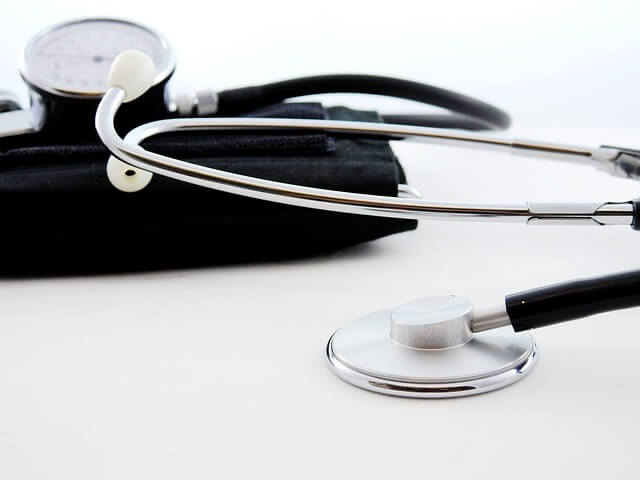
By getting treatment for depression after quitting drinking, individuals will be more likely to maintain sobriety and improve their overall wellbeing.
Risk of Alcohol Relapse
The risk of alcohol relapse is a very real concern for those who decide to quit drinking. Quitting alcohol can be an incredibly difficult process, and depression after quitting drinking is unfortunately common. It’s important for those who quit drinking to be aware of the potential for relapse and take steps to protect their mental health. They should get support from family and friends, talk openly about the struggles they face, and seek help if needed. Those with mental health issues should be especially careful when it comes to making the decision to quit drinking, as they may have a higher risk of relapse. It’s important that they speak to a doctor or psychologist before taking on this life-changing journey.
Lifting your mood after you quit drinking

Quitting drinking can be a difficult process, and it is not uncommon to experience depression after quitting alcohol. Fortunately, there are healthy and effective ways to lift your mood after you quit drinking. Exercise is a great way to release endorphins and get your body moving, which can help boost your mood.
Additionally, engaging in activities that bring you joy, such as reading a book or spending time with friends and family, can help improve your mental wellbeing.
Talking to a professional therapist can also provide guidance on how to cope with depression after quitting alcohol. Lastly, taking time for yourself to relax and do something calming like yoga or meditation can be beneficial for feeling better sober.
Overall, there are several steps you can take to lift your mood after quitting alcohol and combat depression after quitting drinking.
When will you feel better from depression after quitting alcohol?
When it comes to recovering from depression after quitting alcohol, the timeline is different for everyone.
Generally speaking, though, you can expect to feel some relief as soon as you quit drinking. However, depending on the severity of your depression and how long you’ve been drinking, it could take several weeks or even months before you start to see a noticeable improvement in your symptoms.
During this time it’s important to focus on self-care and seek out professional help if needed. This can include therapy and/or medication, both of which have been proven to be effective treatments for depression.
Additionally, developing healthier coping skills such as exercise and healthy eating will help in the long run in your journey to recovery from depression after quitting alcohol.
How long does alcoholic depression last?
Alcoholic depression is a serious mental health issue that can last for an indefinite period of time. It can last from days to months, depending on the severity of the case and the individual’s willingness to seek treatment.
Alcohol dependence is progressive, meaning it gets worse over time if not treated properly. As with any mental health disorder, there is no definitive answer for how long alcoholic depression will last. However, there are many factors that can influence its duration.
Factors such as alcohol abuse history, family history of mental illness, and the presence or absence of other mental health issues all play a role in determining the length of time an individual may suffer from alcoholic depression.
With proper treatment and support, individuals can recover from alcoholic depression and go on to lead healthy lives.
Do you get depressed when you stop drinking?
When people stop drinking, they may experience a range of physical and psychological symptoms, such as headaches, fatigue, insomnia, and irritability. These symptoms can be difficult to manage and may lead to feelings of depression. It is important to recognize the signs of depression when stopping drinking so that you can get the help you need. If you find yourself feeling down for more than a few days or if your negative feelings are interfering with your daily life, it’s time to seek professional help. Talking to a therapist or counselor can help identify the cause of your depression and offer strategies for managing it. They may also recommend lifestyle changes or medications to help reduce symptoms. Taking care of yourself during this difficult transition is essential in order to effectively cope with any lingering sadness associated with giving up alcohol.
What happens mentally when I kick the booze?
When you quit drinking, your brain begins to go through a number of changes. Your mental clarity will improve, and you may find that you are more alert and attentive than before. As the toxins from alcohol begin to leave your body, your memory, concentration, and ability to make decisions will also improve. You may also find that you feel a greater sense of peace and relaxation without the need to rely on alcohol as a form of stress relief. Over time, your brain will become healthier and more resilient as it adjusts to functioning without the presence of alcohol. Quitting drinking can ultimately help to improve your mood, reduce anxiety, boost creativity, and provide clarity in decision-making.
Your emotions when quitting alcohol.
When you stop drinking, it can be a difficult and emotional process.
Aside from depression after quitting drinking, you may experience a range of emotions such as guilt, sadness, anger, and anxiety. This is due to the fact that alcohol has been used as a coping mechanism to mask emotions and numb feelings. Not dealing with life can take it’s toll, and we have to re-learn our own coping strategies and mechanisms.
Without alcohol, these feelings can feel overwhelming and hard to manage. Hard, but very doable!
Other emotions such as relief, joy and a sense of accomplishment may also come up as your body adjusts to sobriety. It is important to remember that these feelings are all normal and part of the recovery process.
With the help of therapists or support groups, you can learn how to understand your emotions without relying on alcohol as a crutch. With time and effort, you will be able to enjoy life without the need for alcohol.
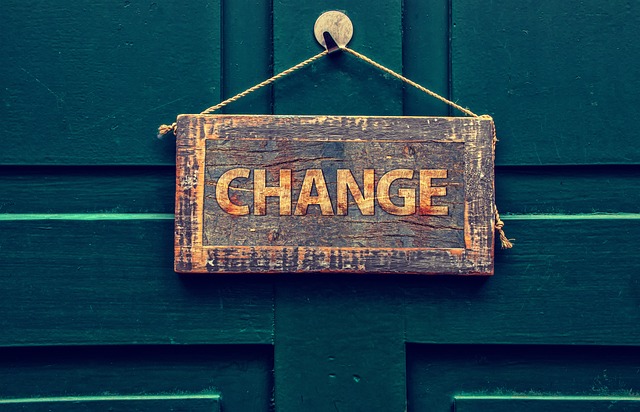
Does your personality change when you stop drinking?
When someone stops drinking, their personality can change in a variety of ways. For some people, sobriety may open the door to greater self-awareness and self-reflection, leading to an increased sense of responsibility and accountability for one’s own behavior. Others may find that without alcohol, they become more confident in social situations, since they no longer feel the need to rely on alcohol for confidence or courage.
Some may even experience a newfound clarity and peace of mind as their thoughts become clearer and emotions are easier to process. Sobriety can also provide an opportunity to form healthier relationships with family members or friends who have been affected by your drinking habits in the past. Ultimately, while every individual’s experience is unique, it is clear that sobriety can bring about dramatic changes in personality – some of which are positive and empowering.
Mood Swings
Yes, stopping drinking can cause mood swings. This is because alcohol affects the neurotransmitters in our brains, which can affect how we feel emotionally. When we stop drinking, these neurotransmitters are no longer being stimulated and they begin to return to their natural balance. As this happens, it can cause feelings of irritability, sadness, fatigue, or depression as the body adjusts to a new normal. In the long run this is a good thing as it means that our brains will be able to function properly without alcohol but during the adjustment period it isn’t unusual for people to experience mood swings. If you are experiencing mood swings after stopping drinking then it is important to talk with your doctor about any concerns you may have and seek help if needed.
5 Tips for Dealing with Depression After Quitting Drinking
Quitting drinking can be a difficult step to take, but it is a very important one for your overall health and wellbeing. It is normal to feel some depression after quitting drinking, as alcohol withdrawal can cause emotional instability. While it may seem daunting, there are many tips you can use to deal with depression after quitting drinking.
- Try to keep yourself busy and remove any temptations – stay away from places where alcohol is served.
- Make sure you are getting enough sleep and exercise regularly – physical activity can help boost your mood.
- Talk to someone about how you’re feeling – whether it’s a friend or family member or even a therapist.
- Practice relaxation techniques such as yoga or meditation to help reduce stress and anxiety levels.
- Focus on healthy eating habits in order to nourish your body with the nutrients it needs. By following these five tips for dealing with depression after quitting drinking, you will be able to manage your emotions more easily and get back on the road to recovery.
Additional reasons you might feel depressed when you quit drinking:
Quitting alcohol is a difficult task that requires dedication and determination. As your body adjusts to life without alcohol, you may experience a variety of emotions, including depression. This is due to the effect that alcohol has on dopamine levels in the brain. When you quit drinking, these levels can drop significantly, leaving you feeling down or exhausted.
Additionally, it takes time to learn how to cope with sobriety and control your cravings for alcohol, as well as how to deal with situations where relapse might seem appealing. In the early days of giving up alcohol, it can be hard to find other activities or outlets that can provide enough satisfaction and pleasure as drinking did before.
It’s important to remember that these feelings are normal and usually pass over time as you adjust to your new sober lifestyle. With patience and understanding from yourself and others, you will learn how to deal with these emotions in healthy ways and get used to life without drinking.


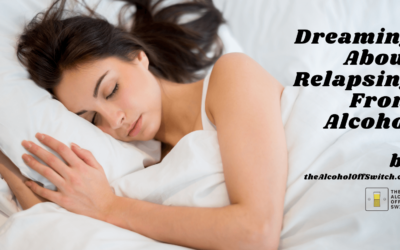
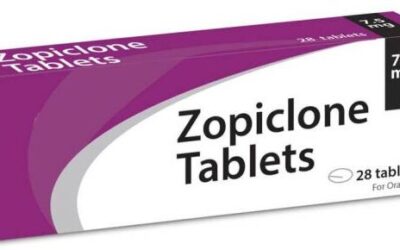
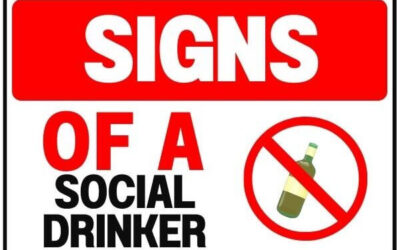
0 Comments